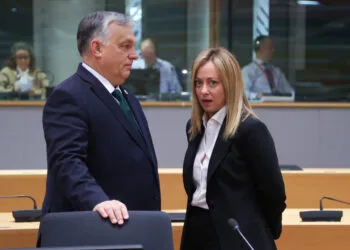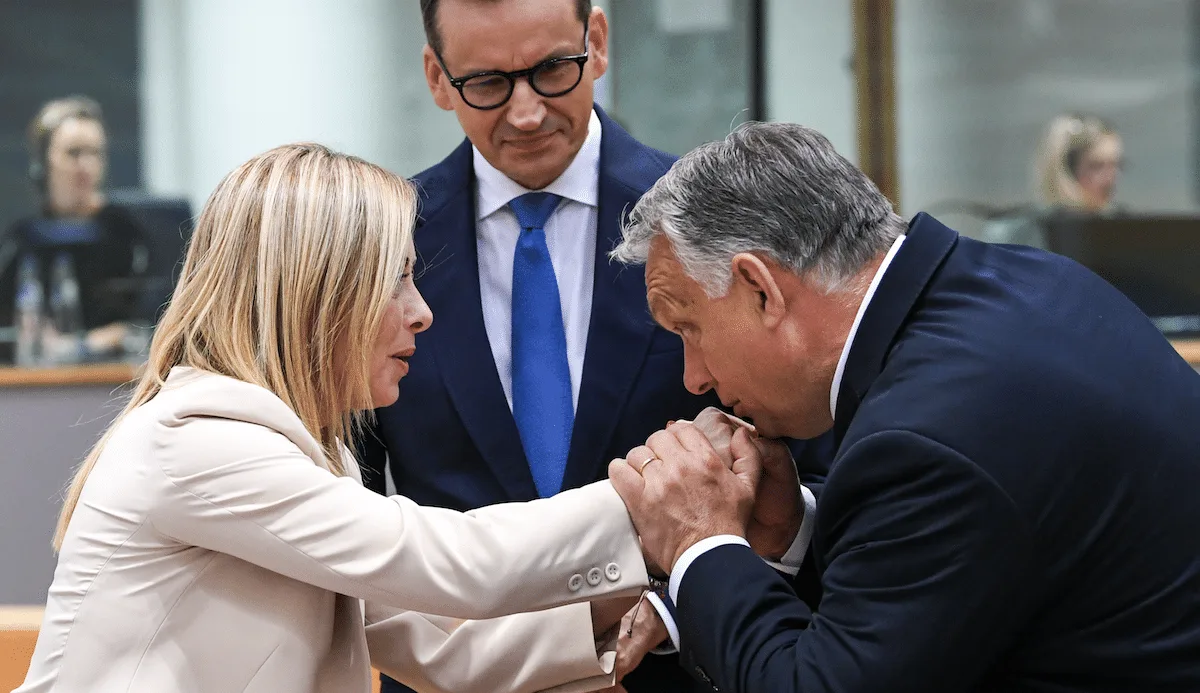Brussels – Nationalists have this problem: they are united in words but actions because of the national contrasts inherent in their programs and ideology. Yet another example is how Fidesz, the party of Hungarian Prime Minister Viktor Orbán, closed the door to joining the political family of the European Conservatives and Reformists (ECR) after months of mutual courtship with the Italian Premier and President of the ECR party Giorgia Meloni. The reason is all nationalist and related to the announcement made late yesterday afternoon (June 19) by the conservative right-wing group in the EU Parliament on the entry of five new members of the ultranationalist Romanian party Alliance for the Union of Romanians (AUR).
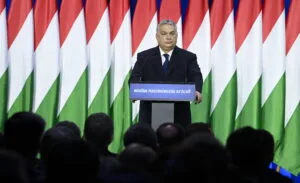
“Fidesz will never share a group with such a party in the European Parliament. It is non-negotiable,” is the harsh attack of Fidesz’s parliamentary group leader, Máté Kocsis. Words immediately echoed by the Hungarian prime minister’s spokesman, Zoltán Kovács, who indirectly exposed Orbán on the issue of Romanian MEPs elected from the ranks of the Romanian nationalist party, “known for its extreme anti-Hungarian stance” joining the ECR group. As the conservative right-wing group in the EU Parliament said, MEPs Claudiu-Richard Tarziu, Gheorghe Piperea, Maria-Georgiana Teodorescu, Adrian-George Axinia, and Serban Dimitrie Sturdza, along with Cristian Terheș of the Romanian National Conservative Party (PNCR) made Romania the third largest delegation in the 83-member ECR group (tied with the Spaniards of Vox, behind the 24 of Fratelli d’Italia, and the 20 Poles of Law and Justice).
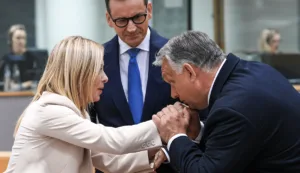
Fidesz’s is a significant setback after months of talks between the Hungarian Premier and his Italian counterpart over a possible entry of the Hungarian party into the European political family of conservatives, starting with membership in the ECR group in the EU Parliament. “We are ready, and we will enter. The idea was to enter already before the elections, but, at this point, we will do it after the vote,” Orbán said on the sidelines of the extraordinary European Council in February, answering questions about the destination of his MEPs (10, after the June elections). Since 2021, Fidesz has been relegated to the group of the non-aligned of the EU Parliament after Orbán decided to leave the European People’s Party (EPP) just before suffering the humiliation of the now-decided expulsion by the Populars. On the eve of the European elections, the Hungarian PM endorsed the proposal of Marine Le Pen, the most charismatic figure of the French far-right Rassemblement National, to PM Meloni to create a single group of all conservative and far-right parties in Brussels (besides the ECR, also Identity and Democracy). At the moment, the scenario of a right-wing mega-group – which would count at least 141 members (83 from the ECR and 58, in addition to possible non-registrants and newly elected members) – seems unrealistic, even given the latest developments between Fidesz and the ECR on the AUR.
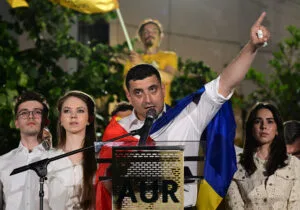
By bringing the AUR into the group, European conservatives gave a clear signal and are unlikely to grow with Fidesz’s 10 seats. Founded in 2020, the Alliance for the Union of Romanians began to grow in the polls under the leadership of George Simion, an ultra-fan known in the corners of Romanian soccer stadiums and a strong supporter of the reunification of Romania and Moldova (an idea incorporated into the party’s program). AUR is a classic example of far-right extremism on the issues of the traditional family, nationalism, immigration, and relations with the (Orthodox) Church and even more than ambiguous about its relationship with Moscow: on the one hand, claims on Moldova place the AUR on a collision course with the Kremlin, but on the other, several members are open supporters of the Russian autocrat Vladimir Putin. Simion is suspected of having had contacts with Russian intelligence services, so much so that Ukrainian and Moldovan authorities have banned him from entering their respective territories for security reasons. What is certain is that the Romanian far-right is opposed to military aid to Ukraine and shows a perversion for Vlad III of Wallachia, known as ‘The Impaler’ who ruled various times between 1448 and 1477 and inspired the figure of Count Dracula.
English version by the Translation Service of Withub




